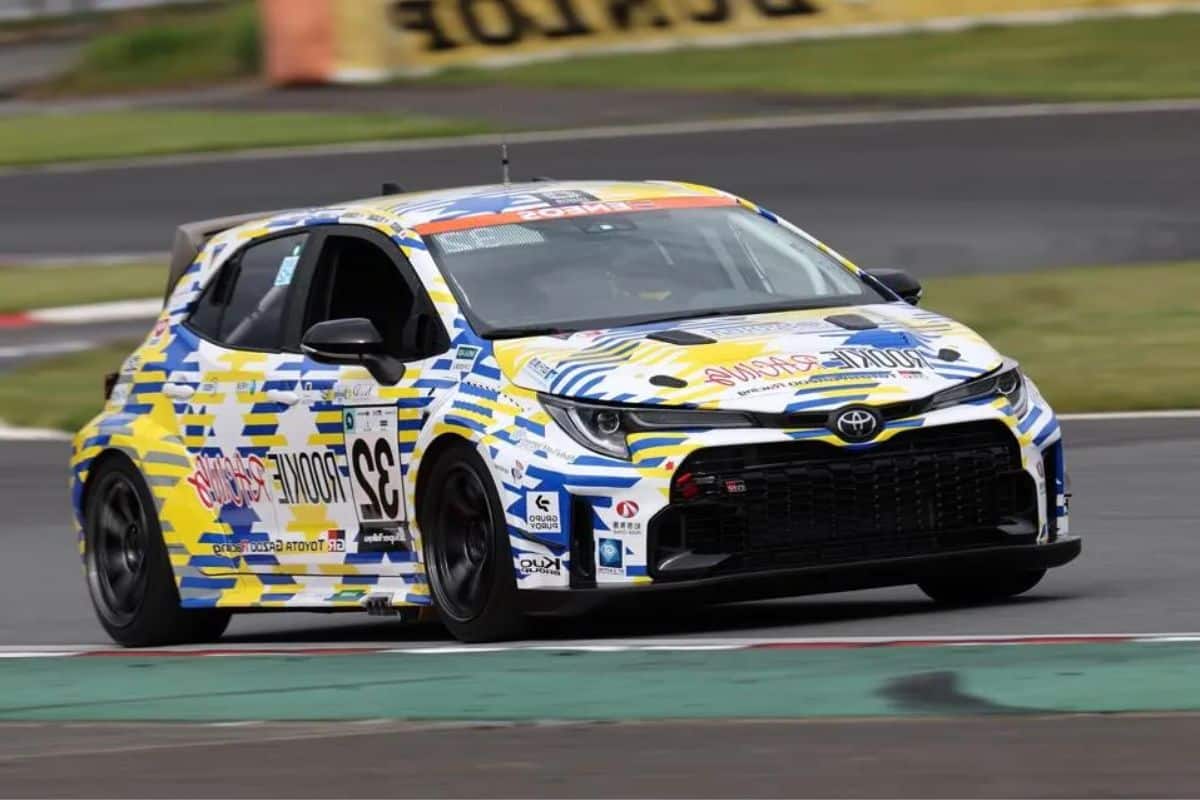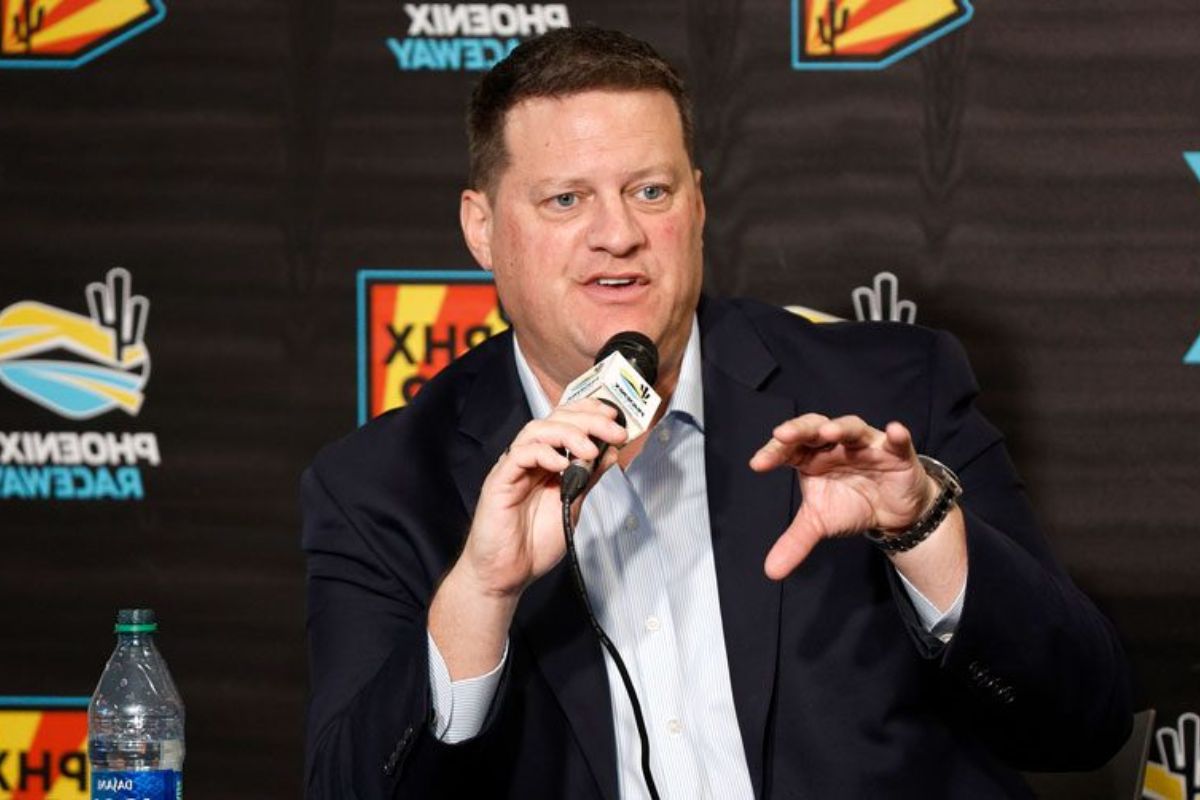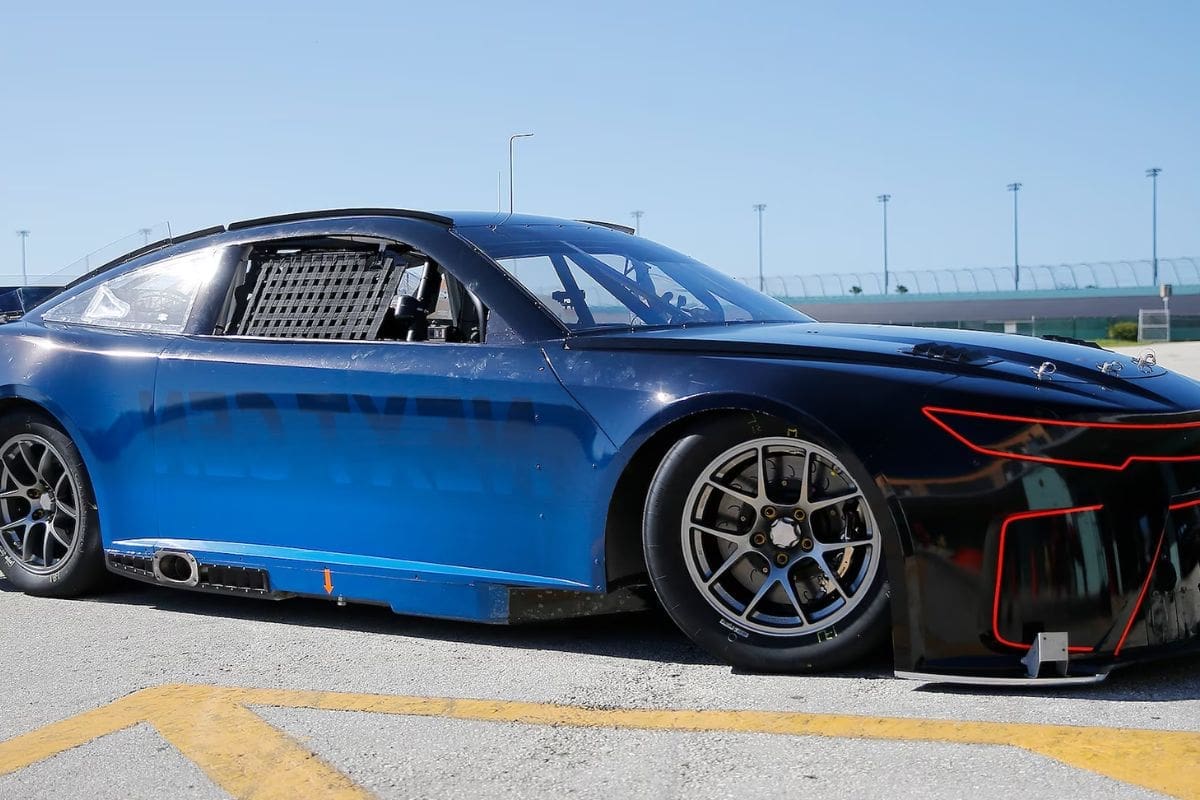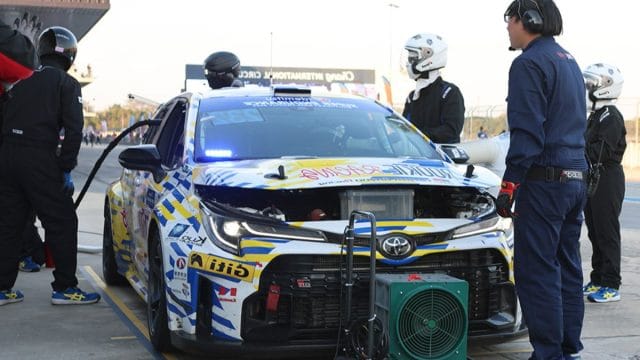NASCAR EV Racecar Debut: The world of motorsports is on the cusp of a groundbreaking shift as NASCAR gears up to debut its first-ever electric racecar. While the roar of traditional engines has long defined the sport, the introduction of an electric vehicle marks a significant leap towards a more sustainable and environmentally friendly future.
But this transition is not one born out of a mere desire to follow trends; rather, it is a strategic move that showcases NASCAR’s commitment to embracing alternative fuels and staying ahead of the curve.
In this discussion, we will explore NASCAR’s history of testing and exploring electric vehicles, as well as their strategic approach towards incorporating alternative fuels. Additionally, we will dive into Toyota’s involvement in hydrogen technology and the global exploration of alternative fuels, providing an insightful glimpse into the future of motorsports.
So, fasten your seatbelts and get ready to witness the electrifying journey that lies ahead.
Key Takeaways
- NASCAR’s first-ever electric racecar debut at the Busch Light Clash in Los Angeles signifies their commitment to technological advancements in motorsports.
- The EV racecar is not intended to replace traditional ICE racecars but instead focuses on research and development in electric vehicle technology.
- NASCAR has a history of exploring electric vehicle technology, including secret testing of an electric racecar at the zMAX Dragway and an exhibition series featuring electric racecars in 1999.
- NASCAR is strategically exploring alternative fuels, including hydrogen technology, in their quest for cleaner and more efficient fuels for stock car racing.
NASCAR’s Electric Vehicle Debut
NASCAR is making a groundbreaking move in the world of motorsports with the highly anticipated debut of its electric vehicle (EV) racecar at the Busch Light Clash in Los Angeles. This marks a significant step in NASCAR’s exploration of alternative powertrain technologies.
However, it is important to note that the EV racecar is not meant to replace the traditional internal combustion engine (ICE) racecars. Instead, NASCAR’s EV program focuses on research and development, aiming to understand electric powertrain options for racecars.
This debut signifies NASCAR’s commitment to staying at the forefront of technological advancements in the industry. By embracing electric vehicles, NASCAR is not only showcasing its adaptability but also acknowledging the growing importance of sustainable and eco-friendly solutions in the world of motorsports.
This move has the potential to revolutionize the sport and attract a new generation of fans who are passionate about both racing and environmental conservation.

NASCAR’s Electric Vehicle Testing and History
The exploration of electric vehicle technology in the world of motorsports has a long and storied history, dating back to the 1820s. Over the years, various racing organizations have embraced the potential of electric cars, and NASCAR is no exception. In fact, NASCAR has been discreetly testing electric vehicles, reflecting their commitment to staying at the forefront of automotive innovation.
One notable example is NASCAR’s EV racecar, which recently underwent secret testing at the zMAX Dragway. This racecar, resembling a small crossover-style passenger vehicle, aims to explore the possibilities of electric power while still maintaining the distinctive noise that is associated with stock car racing.
To engage the audience further, let’s take a closer look at the history of electric vehicle testing in NASCAR. The table below highlights some key moments in the evolution of electric vehicles in the world of stock car racing:
| Year | Milestone | Description |
| 1999 | NASCAR Electrics |
NASCAR introduced an exhibition series featuring electric racecars. Although short-lived, it laid the groundwork for future exploration of electric technology.
|
| 2011 | NASCAR Green |
NASCAR launched its sustainability initiative, focusing on reducing carbon emissions and promoting alternative fuels, including electric power.
|
| 2021 | Secret Testing |
NASCAR conducted secret testing of an electric racecar at the zMAX Dragway, signaling their ongoing commitment to exploring EV technology.
|
Through these initiatives, NASCAR has shown its dedication to staying ahead of the curve in the ever-evolving world of motorsports. As electric vehicles become more prevalent, NASCAR’s exploration of EV technology will undoubtedly shape the future of the sport.
Global Exploration of Alternative Fuels
Exploring global possibilities for alternative fuels, NASCAR’s leadership recently embarked on a visit to Japan to dive into the potential of hydrogen as a sustainable and low-emission option in the realm of motorsports.
Led by Chief Operating Officer Steve O’Donnell and Chief Racing Development Officer John Probst, NASCAR’s interest in hydrogen as an alternative fuel aligns with its commitment to reducing carbon emissions.
By learning from global experiences, especially in races featuring hydrogen-powered vehicles, NASCAR aims to stay at the forefront of innovation in motorsports.
Hydrogen is a promising option due to its potential to greatly reduce greenhouse gas emissions.
This global exploration demonstrates NASCAR’s dedication to finding sustainable and environmentally friendly solutions for the future of racing.
As the shift towards alternative fuels continues to gain momentum, NASCAR’s proactive approach positions them as leaders in the transition to a more sustainable motorsports industry.

Toyota’s Involvement in Hydrogen Technology
Toyota, as one of NASCAR’s OEM partners, has actively engaged in the development and advancement of hydrogen technology, demonstrating a commitment to exploring diverse powertrain options for high-performance applications like motorsports.
Toyota has been at the forefront of hydrogen-powered vehicles, utilizing Fuel Cell Electric Vehicles (FCEVs) and Hydrogen Internal Combustion Engines (HICEVs). This involvement showcases Toyota’s dedication to innovation and sustainability in the automotive industry.
Hydrogen technology offers several advantages, such as zero-emissions and fast refueling times, making it an attractive option for high-performance vehicles. Toyota’s experience and expertise in this area position them as a key player in the future of motorsports and the transition towards more sustainable racing.
NASCAR’s Strategic Approach to Alternative Fuels
With a focus on innovation and sustainability, NASCAR is strategically exploring alternative fuels to shape the future of stock car racing. The organization recognizes the need for a shift towards cleaner and more efficient fuels to reduce environmental impact while maintaining the excitement and competitiveness of the sport.
NASCAR’s commitment to research and development is evident in their exploration of various alternative fuel technologies, including electric vehicles (EVs) and hydrogen. By embracing EVs, NASCAR aims to leverage advancements in battery technology to enhance performance and promote the adoption of electric vehicles in mainstream society.
Simultaneously, their involvement in hydrogen technology demonstrates a forward-thinking approach, as hydrogen fuel cells offer the potential for zero-emission racing without compromising power or range.
NASCAR’s strategic approach to alternative fuels showcases their dedication to driving progress in the motorsports industry.
Conclusion of NASCAR EV Racecar Debut
NASCAR’s foray into the world of electric vehicles marks a significant shift towards the future of motorsports. Through their testing and exploration of alternative fuels, such as hydrogen technology, NASCAR is strategically positioning itself to adapt to the changing landscape of the automotive industry.
This endeavor not only showcases their commitment to environmental sustainability, but also highlights their innovative spirit and willingness to embrace new technologies.
As the world continues to prioritize clean energy solutions, NASCAR’s electric racecar debut is a step in the right direction.

Our Reader’s Queries
Q. Will NASCAR have electric cars?
A. The latest electric racing vehicle in the sport adopts a crossover design, as revealed below. O’Donnell mentioned in an early November press conference that while NASCAR might not engage in racing with this vehicle, there are plans to showcase it at specific events in 2024. Additionally, NASCAR is exploring other variations of the car for future considerations.
Q. When was the first electric motor car?
A. The initial electric car in the United States emerged during 1890–91, crafted by William Morrison from Des Moines, Iowa. This six-passenger wagon boasted a speed capability of 23 km/h (14 mph). The broader interest in electric vehicles among consumers did not materialize until 1895, spurred by A.L. and his contributions to the burgeoning electric vehicle landscape.
Q. Is there an all electric race car?
A. From the 2022 season onward, the top category “World RX” in the FIA World Rallycross Championship has transitioned to the fully electric class RX1e. All vehicles in this novel class share a common powertrain, developed by Kreisel Electric.
Q. Will NASCAR ever go electric?
A. During a news conference held last fall at Phoenix Raceway, Steve O’Donnell, NASCAR’s chief operating officer, indicated that the sanctioning body was aiming for no earlier than 2024 to launch a distinct exhibition electric vehicle series.
ALSO READ: Denny Hamlin NASCAR Evolution: Shifting Persona and Racing Excitement
